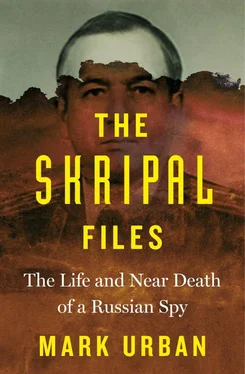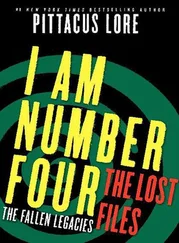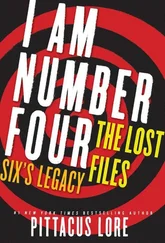It was soon apparent that the new victims had been living on the margins of society. Ms Sturgess had lost custody of her kids and was staying in a hostel. Mr Rowley was a hard-drug user on a methadone prescription. The two, both in their mid-forties, had become an item a few months earlier. The day before falling ill they had been with friends in a park on the southern fringes of Salisbury, Queen Elizabeth Gardens.
The couple were known to ‘skip dive’, searching through bins for items they might sell, or indeed discarded drugs. Police soon formed the view that they had found what appeared to be a normal perfume bottle, with some Novichok still inside it, and took it with them, initially back to Sturgess’s hostel in Salisbury, and then on to Rowley’s house, several miles away, in Amesbury. Swabs carried out in hospital showed that they had become contaminated through handling something. Dawn was believed to have applied the thick liquid inside the bottle to her wrists, giving her a dosage of poison estimated at ten times that what Sergei Skripal had received.
It wasn’t initially clear to investigators whether the perfume bottle was simply a clever way to get the poison through an airport, and that some was subsequently put into a syringe-type applicator for use on the Skripals’ door handle, or whether the bottle found in Amesbury was the device used to squeeze the viscose liquid onto the door handle in Christie Miller Road. For months they had been frustrated by their failure to find either a transport container or a syringe-type applicator during their earlier searches. These two poor people, one of whom had died, had done that for them.
While the new crisis shook public faith in the clear-up operation, and to a certain extent the police investigation, it did offer the detectives a new opportunity. Earlier assumptions that the perpetrator was picked up by his or her driver quite close to the Skripal home could be re-examined. If that person had walked down from Christie Miller Road, through the city centre, to the Gardens just to the south, discarded the applicator, and then got into a vehicle to leave Salisbury, then the CCTV footage harvested earlier in the investigation could be looked at afresh, with this new hypothesis in mind, and matched to the known locations of their subjects of interest.
On 8 July, eight days after being taken ill, Salisbury Hospital announced the death of Dawn Sturgess. With this tragedy the investigation became a murder inquiry. Government ministers made it clear that they would not be stampeded into new steps against Russia. The new poisoning was, after all, believed to be a consequence of the original act and therefore also fitted with their priority of avoiding further conflict with the Kremlin.
The Amesbury postscript reminded us of something we saw during the Litvinenko affair. Complex investigations of this kind can go quiet for long periods during which diplomats or businesspeople might assume that relations are getting back to normal. But a new police announcement can suddenly reopen the wound. For the UK government, trying to manage its relationship with Russia, these months showed how everything would become subject to the interplay of two opposing forces: on the one hand a stream of consequences from the Salisbury attack periodically inflaming the situation; on the other a recognition that the two states still had such extensive complex ties that it was essential to get on – or try to.
As the Skripals convalesced that summer, life more widely seemed to be on the road to recovery. Wild talk, early in the poisoning crisis, about a European boycott of the World Cup tournament, perhaps even a drift to open conflict with Putin, had been put to bed. Instead, an England team and its fans set off for the football in Russia – enjoying a successful tournament too – firms announced new contracts, and Russian tourists by the thousands still arrived weekly in London. When Dawn Sturgess died, ministers sought to cool the political temperature rather than further inflame it.
The British government knew it would be fighting diplomatic headwinds if, for example, it tried to go for a second round of Russian expulsions at that moment. European allies didn’t want to take further action, and indeed earlier in the summer Jean-Claude Juncker, President of the European Commission, told a public audience, ‘I do think we have to reconnect with Russia… this Russia-bashing has to be brought to an end’. As for the UK intelligence agencies, elements in MI6 made emollient rather than bellicose noises.
British spooks appear at this time to have leaked their own counter-narratives designed to limit the damage to relations with Moscow and get things back on a calmer track. Certainly the notions that Putin may well not have known about the attack or that Skripal might have been the victim of some sort of feud with former airborne or GRU colleagues were around, and made it into a couple of Britain’s national newspapers during the summer months.
In an echo of the earlier Litvinenko and Berezovsky crises, the ‘better to keep channels open’ faction among the alumni of MI6’s Russia operation found themselves on a different side of the argument to the leadership of MI5, the Security Service. After clearing out most of Russia’s spies in March, the domestic counter-espionage people took a tough line with visa applications for replacement staff at the embassy, refusing point blank to agree to those of known intelligence officers. Having gained an advantage over the SVR and GRU London stations, MI5 did not intend to give it up.
Just as these arguments for and against normalizing relations with Russia ebbed and flowed in Whitehall so Washington’s decision-makers could not easily unite around a common policy. The Trump administration oscillated from a tough initial response with sixty expulsions, to the president suggesting in June at a G7 economic summit in Canada that Russia should be readmitted to their club; him tacking still further in the Kremlin’s direction at a meeting with Vladimir Putin where Mr Trump suggested that the Russian leader’s word carried greater weight than that of his own intelligence chiefs; to a dramatic move in the opposite direction in August when the US announced sanctions against Russia under a 1991 statute banning chemical and biological weapons use.
This last measure set in train an escalating series of possible steps if Russia did not comply with American demands for on-site inspections. Thus almost everyone, from presumably those who conceived the original Salisbury operation to the many NATO and British decision-makers who discussed its possible consequences, apparently overlooked the possible effects of the US Chemical and Biological Weapons Control and Warfare Elimination Act. At the Kremlin, where perhaps they had assumed like many in the West that relations were back on the road to normality, a shocked spokesman lambasted the American move as irrational and illegal while Moscow financial markets tumbled.
Even if the State Department had not unleashed this retaliation by late summer everyone in Whitehall was expecting Scotland Yard to name and charge suspects from the Russian poisoning team, following up with an extradition request. While many predict the Kremlin will refuse, the expected battle of wills looks set to give hardliners on the Salisbury issue the advantage over those who want Anglo-Russian business to get back on a more even keel.
And what of the man who was the original target of all this? What was to be done with him? From the British government perspective it was better that he remain quietly out of view, even if a statement like Yulia’s might follow. In theory he was free to do or say anything, whether that be launching a blistering attack on the British government for failing to protect him from Putin’s assassins to pleading it had all been a terrible misunderstanding and could he go back to Russia now please.
Читать дальше












